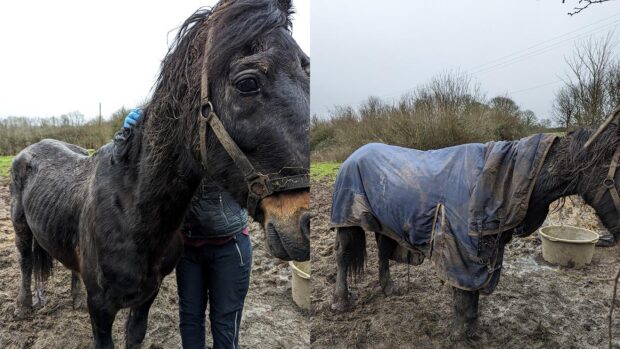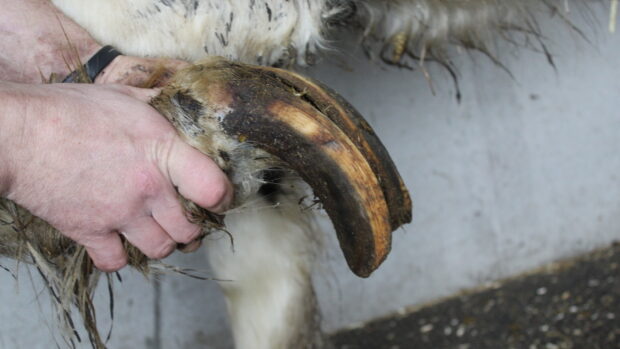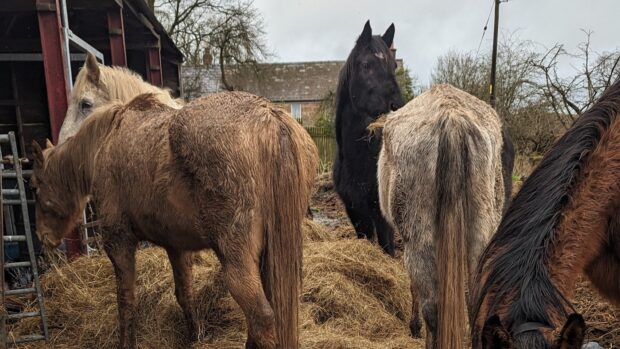Calls have been made for a review of the enforcement of animal welfare legislation – as the current system is “lacking”.
On 24 February the Government’s animal sentience committee published an independent report on the “compliance and enforcement” of animal welfare regulations.
The report highlighted issues including inconsistencies in monitoring and enforcement of the legislation, discrepancies in actions taken by the different agencies responsible, and in welfare inspector training.
Among the topics, the committee addressed reporting and prosecutions, stating that it was “striking” that in the UK many potential welfare breaches are directed to an animal welfare charity such as the RSPCA rather than a Government agency – and that “if charitable donations were to diminish, capacity to deliver this public service could not be relied upon”.
The report said the “landscape of enforcement has recently changed”, as the RSPCA, previously responsible for a large proportion of animal welfare prosecutions, explored the possibility of ceding this to the Crown Prosecution Service (CPS). But it added that, “it was unclear whether the CPS has the necessary resource or expertise to assume this responsibility, and whether this is likely to become adopted policy”.
“The RSPCA has indicated a rise in animal welfare offences linked to organised crime, which it feels ill-equipped to take on through private prosecution; this would suggest a need for the state to take a greater role to protect animal welfare,” said the committee.
An RSPCA spokesperson told H&H the charity agrees with the report’s assessment that the state should play a bigger part in prosecutions.
Active discussions
“Although the CPS is the statutory body with responsibility for criminal prosecutions, the RSPCA currently undertakes 85% of animal welfare cases. For the last two years, we have been actively discussing the transferral of our prosecutions to the CPS with the Government,” said the spokesperson.
“We have a 200-year history of investigating and prosecuting in this crucial area and until the UK Government allows us to transfer our prosecutions to the CPS, we will continue to responsibly bring cases.
“Wherever possible, we work with owners to improve welfare for their animals, through education, support and advice, which means less than 1% of reports of cruelty and neglect result in prosecution. When we do take a prosecution, we apply the same robust tests as the CPS and have safeguards, including independent solicitors who review our cases and an independent oversight panel.”
The spokesperson added that the RSPCA’s prosecution success rate is more than 90%.
The committee’s report concluded that “although due regard to animal welfare has been given in policy decisions, the current structures are, in part, inconsistent for effective enforcement of animal welfare”.
It said that although progress has been made, including the updated sentencing guidelines and introduction of fixed penalties, the committee considers that “an effective, structured, fair and integrated system of animal welfare surveillance and enforcement is lacking”.
The committee recommended a “wholesale review” of animal welfare enforcement to provide a resource for policymakers, improve or enhance delivery of current legislation and “maintain public trust in the enforcement process”.
Suggestions include creating a central body responsible for coordinating animal welfare law surveillance and implementation, setting out minimum resource allocation for animal welfare enforcement – including budgets for training, creating a centrally recognised mechanism for reporting welfare offences, and appropriate and effective use of fixed penalty and improvement notices.
Review welcomed
Kim Ayling, World Horse Welfare’s head of public affairs, told H&H the charity supports the recommendations “overall” and “wholeheartedly welcomes” a review.
“Equine health and welfare laws are worthless if they are not backed up by robust and consistent enforcement,” she said.
“From our own experience, the lack of any prosecutions around the recent cases of horse smuggling highlights there are significant concerns with enforcement. These are due to inconsistencies in interpretation and implementation of legislation, gaps in information and intelligence sharing across enforcement agencies and a lack of adequately trained and resourced animal welfare officers.”
Ms Ayling added that World Horse Welfare was “disappointed” the report did not include the suggestion of a centralised system for people banned from keeping or caring for animals.
“We are aware of a number of recent equine welfare cases where it has been challenging for authorities to establish whether an individual was banned from keeping those animals,” she said.
“As part of the All-Party Parliamentary Group for Animal Welfare (APGAW), we are working with local authorities and other welfare charities to implement one of the key recommendations of APGAW’s report Improving the Effectiveness of Animal Welfare Enforcement to set up a panel of representatives from local authorities engaged in enforcing animal welfare law to cover not just farm animals but companion and exotic animals, too.
“This would allow them to work collaboratively to share information, best practice and ensure better consistency in their approaches.
“While we welcome the points laid out in the report to protect equine welfare, we would like to see a ring-fenced budget to support these measures. A centralised and digitalised ID and traceability system is also essential for enforcement, as we know without it horses are vulnerable to suffering at the hands of those that see them merely as commodities.”
A Defra spokesperson told H&H the government “welcomes” the committee’s report and will be “considering all recommendations carefully”.
- To stay up to date with all the breaking news from major shows throughout 2025, subscribe to the Horse & Hound website
You may also be interested in:

‘Is there horse meat in your lasagne? Don’t know’: equestrian industry’s warning to Government

Five horses put down after shipment including sick equines and terrified foals intercepted

Subscribe to Horse & Hound magazine today – and enjoy unlimited website access all year round





